Description
A very rare day to see a certified Kenya and from a single estate as well – fully traceable and not just to the mill.
Muiri Estate is located in Kiambu County, Kenya. Muiri Estate has over 443 acres of land with 216 in use for coffee cultivation intercropped with over 200 species of trees totaling more than 90,000, which includes grevillea and eucalyptus trees. Additional land has been set aside and shared with 1,000 local families to cultivate beans. The estate has its own wet-mill where cherry selection, depulping, fermentation, washing, and drying are meticulously executed. When coffee is milled for export, the green beans are sorted by screen size and graded according to size and shape.
Tasting Notes: Bright, crisp, clean, full bodied and exotic, a perfect example of a stellar Kenyan coffee. One sip will let you see what makes Kenya beans so different and special. Lemony floral tones balanced with strong black tea spice accompanied with hints of soft fruit tones, quite the wonderful mix of tones. A great bean to play around with roast level. Lighter roasts accentuate the acidity in the cup which can be on the more potent side, the tea like spice tones are clear as day and pull some nice balance which is not typical for lighter roasting. Medium roasts move the acidity to the background (lower acidity) and greatly accentuate the rich chocolaty notes in the cup. Dark roasts become very stout like and strong, bakers chocolate and spice with low acidity.
Roasting Notes: To see this bean shine, good to keep it at the light to medium roast level. Many dark roast Africans fans will still like it dark, but this cup is full of small tones that will get burned out if you hit or go into 2nd crack. Medium to low chaff and even roasting, would be considered an easy to roast bean but like many Africans, will darken quickly in the roaster which adds a slight complexity. Watch for the expansion in size to mark first crack and give it just a shade or two development for light roasts, a little sheen on the surface for a medium roasts and clear signs of second crack for a dark roast.
Kiambu county sits adjacent to Nairobi, Kenya’s capital city, and is a coffee powerhouse. Along with an extensive community of coffee mills, exporter warehouses and quality labs, and the Coffee Research Institute (near Ruiru Town, after which the disease-resistant hybrid is named), Kiambu is also home to many of Kenya’s largest and oldest coffee estates. Despite the vast number of smallholder farmers in Kenya the estate system persists, and in many cases reflects both Kenya’s colonial origins and its current identity as a self-actualized producer of some of the world’s most obsessed-over profiles.
Coffee’s history in Kenya is astonishingly short compared to Ethiopia, its neighbor to the north, with the introduction of coffee occurring around the turn of the 19th century at the hands of British missionaries who brought bourbon-lineage coffee trees from Brazil. As the value of the cash crop grew in the European marketplace, the British settlers would force indigenous Africans out of the trade by outlawing coffee production outside their colonial estate network. This however did not stop the British from requiring unpaid labor from the same population to further reduce their costs and boost output for the colony. It wouldn’t be until the years of conflict prior to Kenya’s independence, from 1952-1960, that indigenous Africans would be permitted to plant coffee—although for years afterward plantings were severely limited and none of the coffee produced by smallholders was permitted to be consumed. Since independence, the large estate holdings have evolved to reflect Kenya’s modern demographic: ownership can be single families, corporations, or groups of shareholders.
In the case of Muiri Estate, a 443-acre farm with 216 acres of planted coffee, it is a local family and management team. The estate is named after an African tree species, the Prunus Africana—or “muiri” in the local Kikuyu language. Muiri has over 150,000 coffee trees in production and 94,000 old and new-growth trees for shade throughout the property. Estates of this size with no mechanization for harvesting require massive amounts of labor, and Muiri has developed not only a cottage community for its staff, but has also donated enough of its own land for 1,000 families to grow beans, a common household staple in Kenya. The property uses a dam to gather fresh water for fermentation, which is then re-used for moving cherry through the pulper before placing it in seepage pits for filtration. Muiri is organic certified. This is not to be overlooked, particularly in Kenya whose delicate cultivars, smallholder-dominant system, ageing trees, and climate change leave very little room to reduce fertilizer and pesticide use, as a matter of survival for hundreds of thousands. Muiri’s formidable resources, however, are being used in the right direction. They have been certified since 2008 and continuing to raise and process beautiful coffees using wholly organic inputs and canopy management.
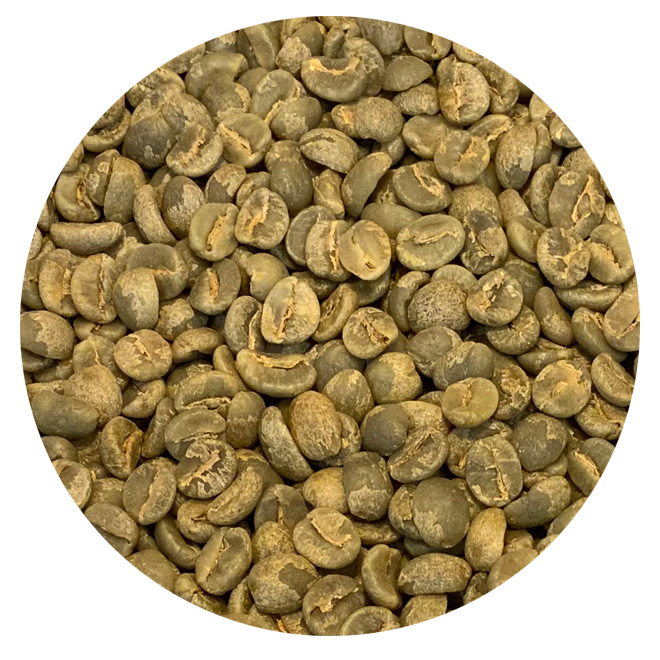
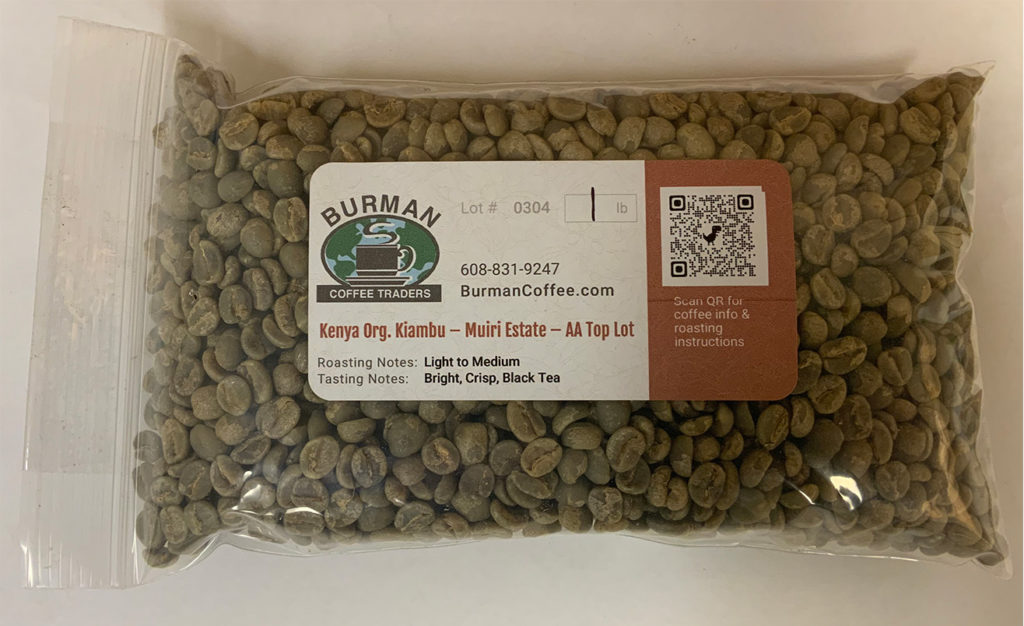
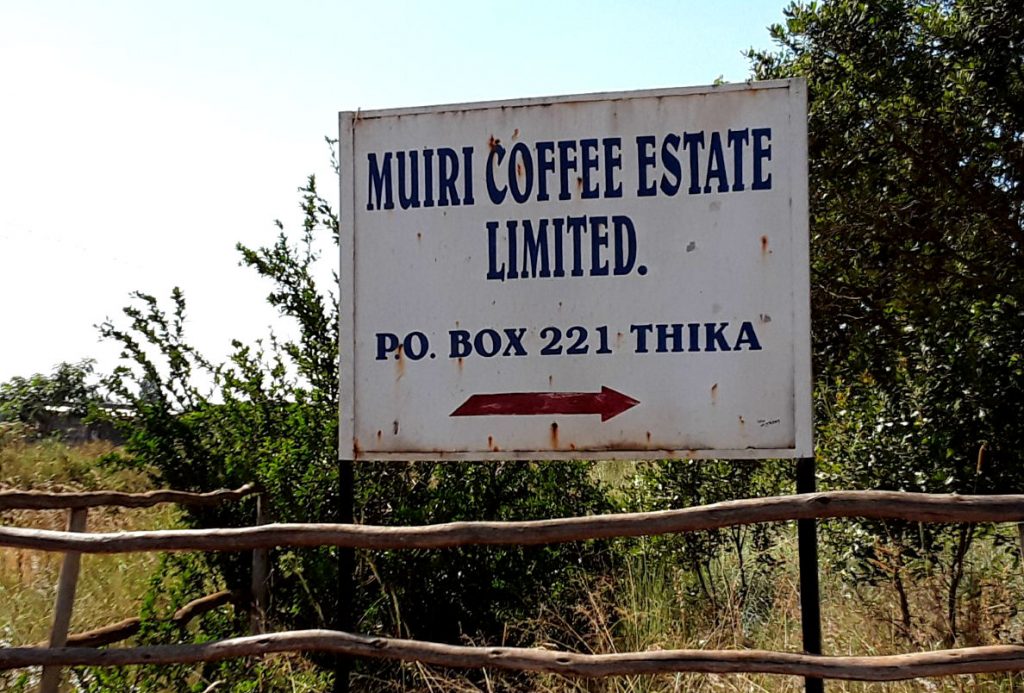
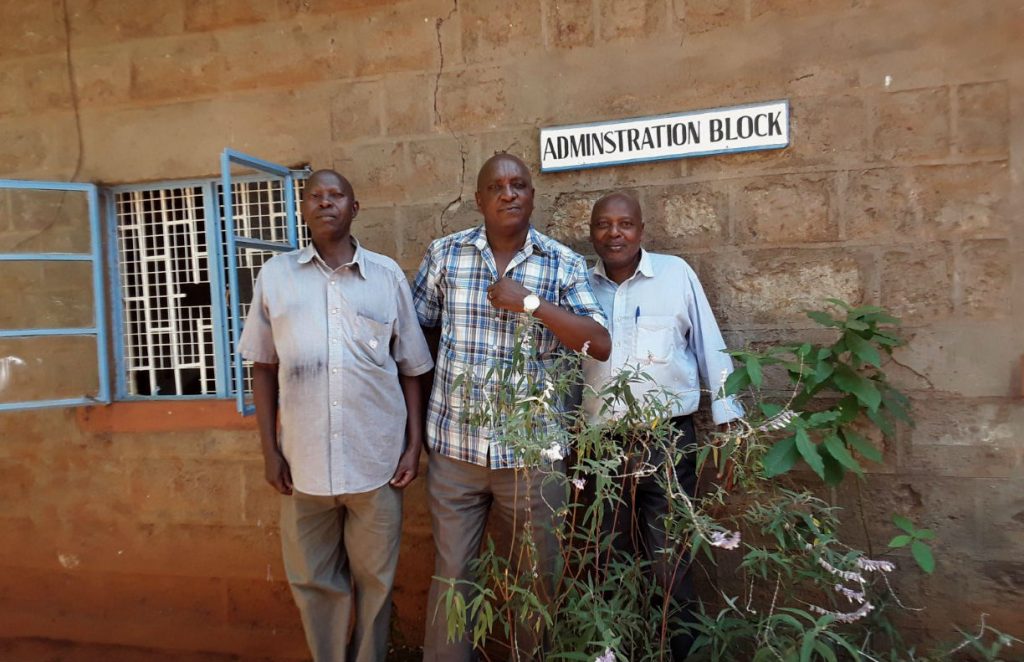
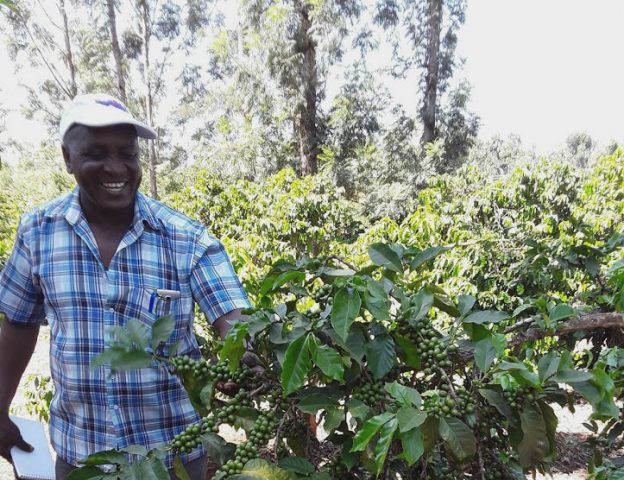
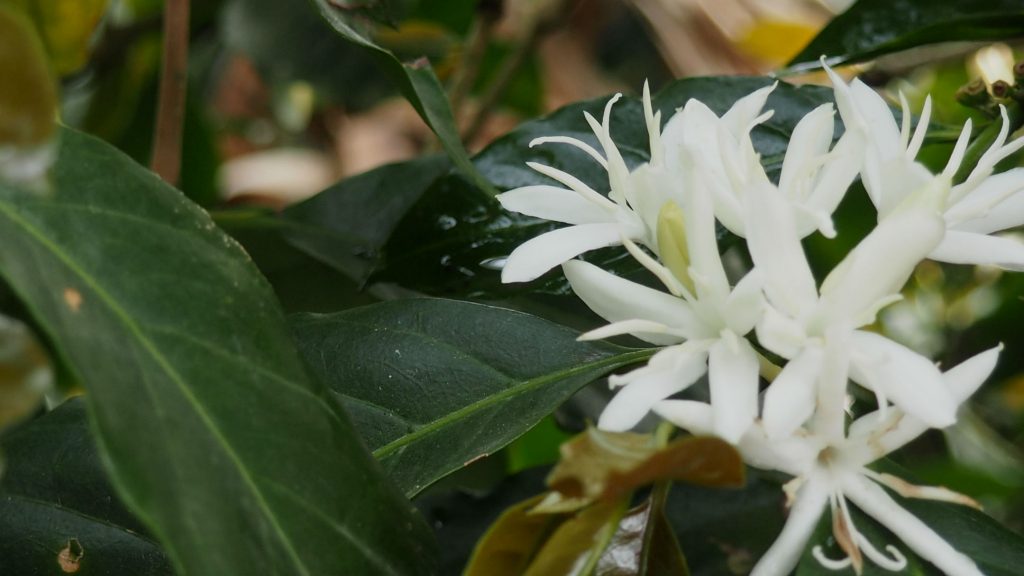
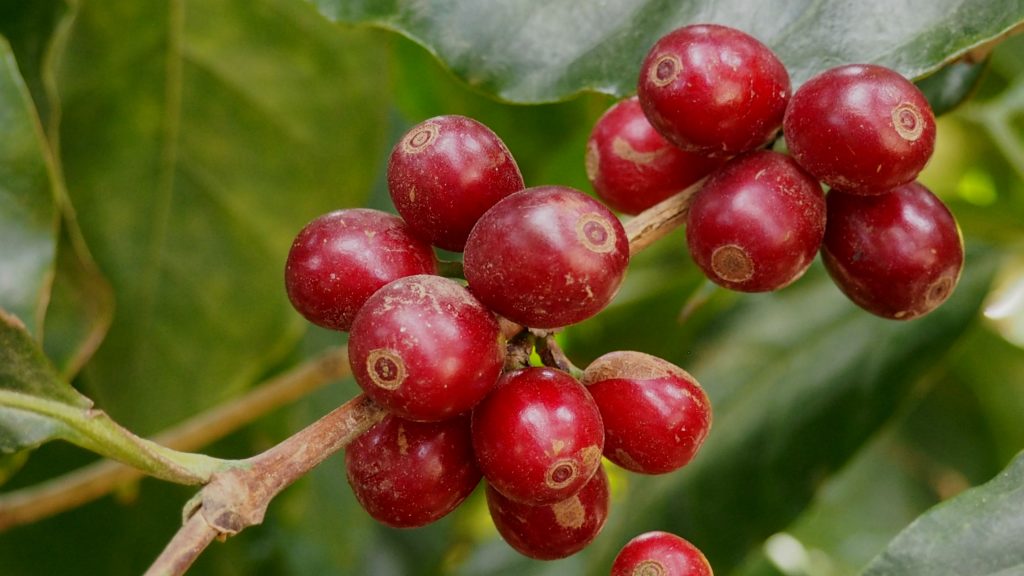


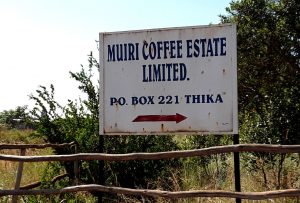
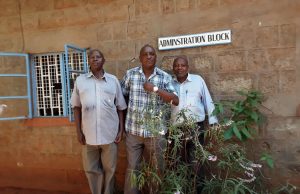
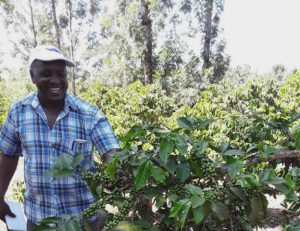
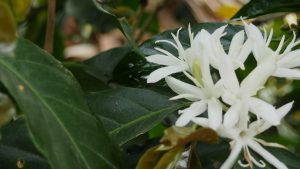
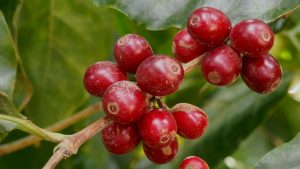







Kris –
One of my favorites
plbowman (verified owner) –
For sorting, the greens are remarkably clean, even in size, w/ no debris. With fine grind and light/med roast, pourover yields nice bold fruit/acid and balanced flavors. 7.5 out of 10 & would buy again.